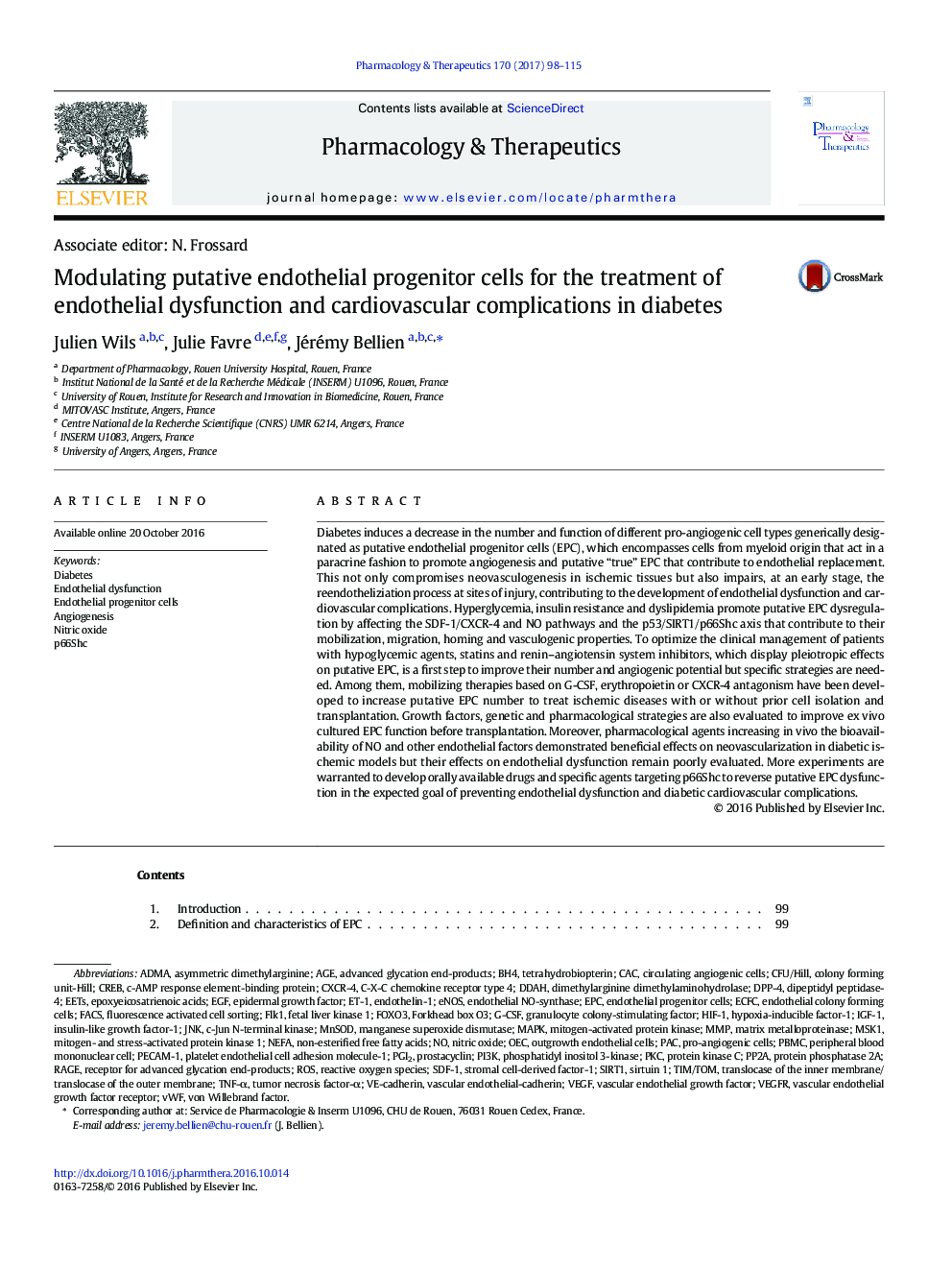| کد مقاله | کد نشریه | سال انتشار | مقاله انگلیسی | نسخه تمام متن |
|---|---|---|---|---|
| 5557713 | 1560935 | 2017 | 18 صفحه PDF | دانلود رایگان |
Diabetes induces a decrease in the number and function of different pro-angiogenic cell types generically designated as putative endothelial progenitor cells (EPC), which encompasses cells from myeloid origin that act in a paracrine fashion to promote angiogenesis and putative “true” EPC that contribute to endothelial replacement. This not only compromises neovasculogenesis in ischemic tissues but also impairs, at an early stage, the reendotheliziation process at sites of injury, contributing to the development of endothelial dysfunction and cardiovascular complications. Hyperglycemia, insulin resistance and dyslipidemia promote putative EPC dysregulation by affecting the SDF-1/CXCR-4 and NO pathways and the p53/SIRT1/p66Shc axis that contribute to their mobilization, migration, homing and vasculogenic properties. To optimize the clinical management of patients with hypoglycemic agents, statins and renin-angiotensin system inhibitors, which display pleiotropic effects on putative EPC, is a first step to improve their number and angiogenic potential but specific strategies are needed. Among them, mobilizing therapies based on G-CSF, erythropoietin or CXCR-4 antagonism have been developed to increase putative EPC number to treat ischemic diseases with or without prior cell isolation and transplantation. Growth factors, genetic and pharmacological strategies are also evaluated to improve ex vivo cultured EPC function before transplantation. Moreover, pharmacological agents increasing in vivo the bioavailability of NO and other endothelial factors demonstrated beneficial effects on neovascularization in diabetic ischemic models but their effects on endothelial dysfunction remain poorly evaluated. More experiments are warranted to develop orally available drugs and specific agents targeting p66Shc to reverse putative EPC dysfunction in the expected goal of preventing endothelial dysfunction and diabetic cardiovascular complications.
Journal: Pharmacology & Therapeutics - Volume 170, February 2017, Pages 98-115
